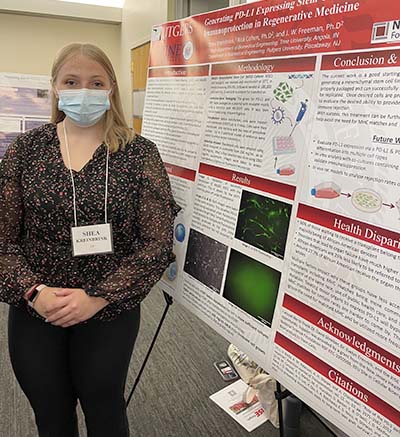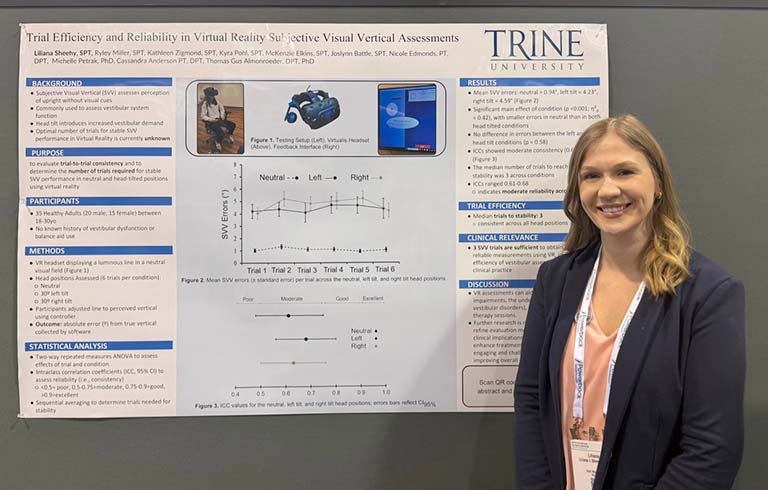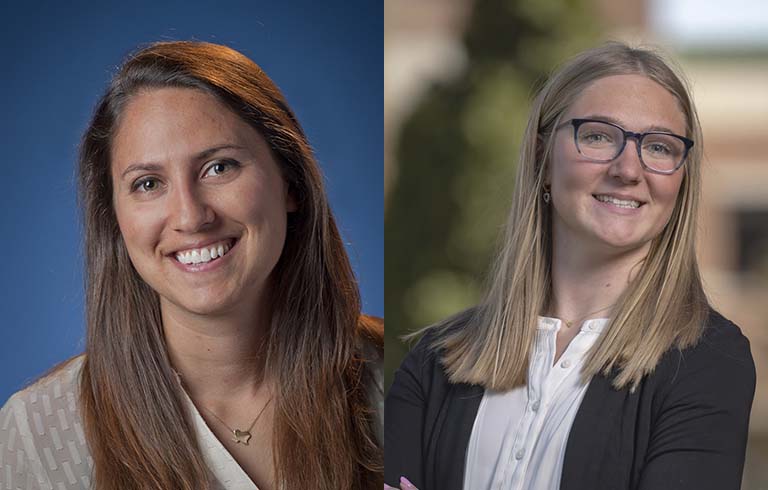 Hoping to develop her skills for graduate school, Trine University biomedical engineering
major Shea Kreinbrink decided to seek out a research experience for undergraduates
(REU) this past summer.
Hoping to develop her skills for graduate school, Trine University biomedical engineering
major Shea Kreinbrink decided to seek out a research experience for undergraduates
(REU) this past summer.
She spent 10 weeks at RISE (Research Intensive Summer Experience) at Rutgers University, helping researchers investigate a possible method to prevent rejection of transplanted
organs.
“It was a perfect fit,” the Whitehouse, Ohio, student said. “I've always been interested
in tissue engineering and its applications in regenerative medicine to help aid those
in need. Ever since high school, it’s really been the only topic to grab hold of my
interest and never let go.”
Kreinbrink applied for her REU, and several others, on the National Science Foundation
website after hearing about REUs, internships and co-ops during a question-and-answer
session for biomedical engineering students at Trine. The Rutgers Cellular Bioengineering
REU, one of her top picks, was the first to respond.
Cancer protein could protect organs
The lab where Kreinbrink served is researching PD-L1, a protein used by cancer to
escape detection by the body's immune system. Located on the outside of the cell,
PD-L1 can attach to its matching receptor, PD-1, on immune cells to suppress their
abilities, protecting the area from an immune system attack.
“Researchers have already developed therapies to suppress the PD-L1 mechanism in cancer
patients, but my lab asked what would happen if we utilized it to protect the cells
we transplant into the body from rejection by the immune system,” she said.
To examine this possibility, researchers introduced DNA into stem cells that allowed
those cells to produce the PD-L1 protein on their surface.
“These are the beginning steps to a possible therapy to make transplant organs in
the future more available and long-lasting, without the need for chronic immunosuppression
and fear of rejection,” Kreinbrink said.
Kreinbrink’s responsibilities included care of the stem cells and culturing them for
future use. As an undergraduate, she was not allowed to handle the lentivirus used
to transduce the cells, but she was present with her mentor to assist in every step
of the process. After the cells were transduced, she captured images to evaluate how
well they were expressing the desired proteins.
She said completing the REU demonstrates research experience when she applies to graduate
school. It also reflects professional and developmental skills if she chooses to go
into industry.
“I loved my experience and would do it again in a heartbeat,” she said. “It only solidified
my love for research more and helped me grow as both a person and a professional in
my field.”
Last Updated: 09/22/2022

 Hoping to develop her skills for graduate school, Trine University biomedical engineering
major Shea Kreinbrink decided to seek out a research experience for undergraduates
(REU) this past summer.
Hoping to develop her skills for graduate school, Trine University biomedical engineering
major Shea Kreinbrink decided to seek out a research experience for undergraduates
(REU) this past summer.
